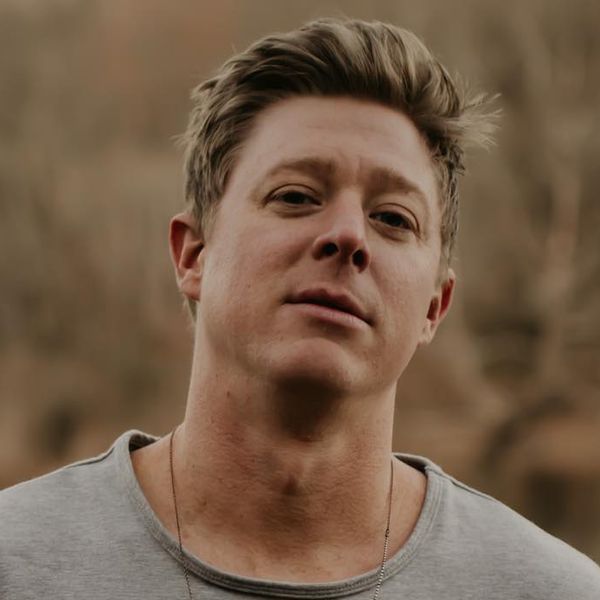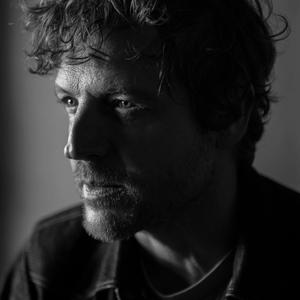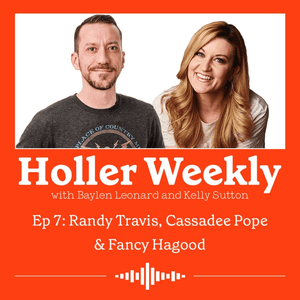




Link copied

Adam Sanders was destined for a career in music. Born into a musical family, the Florida native started singing even before he could talk. Thanks to the urging of his uncle, the steel guitar and dobro player Scotty Sanders, he began writing songs at the tender age of 12. Two years after he graduated high school, Sanders made the move to Nashville.
“I was born into music,” he tells Holler. “It was the only thing I’ve ever wanted to do.”
Sanders relocated to Music City in 2009. His first two years were spent working in construction with his father while writing songs in his free time. Two years later, he signed his first publishing deal with Big Yellow Dog Music. As he goes on to explain, songwriting was the way he’d get his foot in the door. Within six months of signing his deal, Sanders got his first cut with Luke Bryan – ‘Out Like That’ featured on the country superstar’s 2013 record Crash My Party. By 2015, two of his songs had become No. 1 hits for Cole Swindell (‘Ain’t Worth the Whiskey’) and Dustin Lynch (‘Hell of a Night’).
After years of writing songs for other artists, Sanders introduces himself with his debut album What If I’m Right. The singer, whose songs have collectively amassed over 100 million streams, sold his catalog of songs to fund the independent release. “It was a really big gamble of saying, ‘I'm basically going to take my ‘retirement money’, bet on myself and put this album together. I’m going to hire PR and make sure that I've got a good team around me because I believe in my career,” he says.
Catching up, Sanders spoke about his journey as a songwriter and artist, his tight friendship with Cole Swindell and the stories behind the songs of What If I’m Right.

Did you always gravitate to artists who wrote their own songs?
Alan Jackson was my childhood idol. He looked a lot like my uncle, so as a 3-year-old there was some familiarity there for me. My uncle was a big influence and really inspired me; I was about 12 years old when he called my dad and asked to speak with me. He said, “have you ever thought about writing songs?” And I was like, “No, what do you mean?” He said, “All the songs that you hear on the radio, someone had to write them.” I hung up the phone and my dad helped me write my very first song the next day. I found that I really enjoyed the process and so wrote songs all through high school. Back then I wrote about girlfriends, breakups or going to field parties.
So tell me more about that first song you wrote with your dad.
It was a song called ‘Me and You’. It was some heartbreak song about not being able to give up on someone. It was fun to do. My dad showed me three chords on the guitar, and I took it from there. Early on the songs were terrible, but it was awesome to have that time to write by myself and to learn the process of writing.
How did you break into the songwriting scene in Nashville?
One of the very first people that I met when I got to town was Cole Swindell. This is way back before either one of us had anything going on in music. We met through a mutual friend by the name of Josh Martin. I was at Josh's house writing one day and he said, “Man, I’ve got this friend that I feel like you’ll get along really well with. He’s out selling T-shirts for Luke Bryan right now but when he gets back into town, we should all hang out.”
He got back and we started writing songs. His friendship has always been invaluable to me, and it was great to find my group really early on. The first cut that I got with Luke Bryan was because of Cole. While he was out selling t-shirts for Luke, he played him the song and he liked it. A song we wrote together actually became my very first No. 1 as well - he's been a great friend.
Luke Bryan isn’t a bad first cut!
It was honestly so surreal. This was the moment that I knew that I could accomplish anything. I've had dreams of being in Nashville and being in music my whole life, but I didn't have anything to show for it. We write ‘Out Like That’ Cole plays it for Luke and Luke's says he wants to put it on his album. I had only been a published writer for six months, so it was a whirlwind of emotions obviously.
One day, Luke called Cole and I happened to be there with him and his producer Michael Carter, who is also Luke Bryan's guitar player - we were just writing. Luke asked us to come down to Ocean Way, which is where they were recording the album. At that point, I didn't know if the song was going to be recorded - we walk in and they’re hitting the intro lick to the song. Luke walks up, gives me a big hug and says, “Hey man, congratulations on your very first cut”. I still get chills thinking about it. For such a successful guy to recognize that this was my first cut and invite us to watch them record it – that was special. It was just a moment where I was thinking, “OK, if I can get Luke to record my songs, the sky’s the limit.”
Cole Swindell’s ‘Ain’t Worth the Whiskey’ had a long journey to No. 1.
We always thought it was a really good song - through the years it had been on hold for a lot of other artists but would never land anywhere. It's one that holds a special place in my heart, not just because of our friendship but also because it took six years for it to ever get recorded. Montgomery Gentry had it on hold for a long time, so did Easton Corbin, I think Luke actually had it on hold at one point. It was just one of those situations where Cole's career continued to progress, and when it came time for him to get his album together that was one of the first ones they recorded.
With your success as a songwriter, was there ever a thought to forego an artist career?
I moved to Nashville to be an artist, and I knew songwriting was what was going to help me get there. I knew that if I could continue to write good songs and have enough people record them, eventually someone was going to look up and say, “All right, well this guy’s writing them all, why doesn’t he just sing them?” My publisher started to help me release songs as an independent artist, and the first two songs that we put out were played on SiriusXM’s The Highway and did really well, so we were off to the races.
How would you describe your brand as an artist?
I had a lot of success releasing music, but I noticed that there was no symmetry. I started to make a conscious effort [in] 2018 to figure out what that was for me. I grew up on 90s, and I wanted to find the perfect pendulum swing from 90s country to today's country. I have such roots in 90s music and I wanted to stay true to that and to the core of what got me here, but then also be relevant enough to speak to people and fanbases that may not have grown up listening to country music.
I was on a hunting trip in Colorado, and I was doing a lot of soul searching. I feel like God gave me five words: family, faith, fitness, the outdoors and music - I just kept saying that over and over. I learnt that those five things were the most important things in my life, so that's what I wanted to sing about. I decided to take those elements and throw them into my music lyrically and sonically and that's where we’ve ended up.
‘Daddy Jesus and Earnhardt’ certainly seems to encapsulate those five words.
‘Daddy Jesus and Earnhardt’ talks about how I grew up and the experiences that I went through. This is another Cole song that we wrote together with Taylor Phillips and Brock Berryhill. Cole invited Taylor and I to go to a NASCAR race in Atlanta Motor Speedway a couple of years ago, and we were on the bus talking about how NASCAR had influenced and shaped our lives. We talked about the day Dale Earnhardt died and what that meant to us. Then, that night, we thought “how cool it would be to get a crowd to hold up a number one when you sing daddy, two Jesus and three Earnhardt” because his number was number three. That's where that song was birthed from.
‘Bible Versus’ is also unique in the sense that it isn’t quite what you’d expect from the title.
I wrote ‘Bible Versus’ with Ben Stennis and Brice Long. Ben actually had the title and when he said it, I was thinking, “What does that even mean?” When he explained versus was actually the pitting against something and not the verses as in the Bible, I immediately thought, “OK, that's my kind of song. I love songs that have flips.” I was going through a pretty bad breakup at that time, and I started writing what I was going through. That song was on hold for several artists, and it again just never really landed anywhere. I think it was destined for me to sing the entire time, in the same sense that “Ain't Worth the Whiskey” was meant for Cole to record.
It’s often said that it takes your whole life to write your debut album. Is What If You’re Right an accurate portrayal of who you are as an artist?
In taking a gamble and funding this whole thing myself, as hard as I worked on all the music and all the blood, sweat and tears in writing all these songs, I honestly can say that I left nothing on the table. This is the perfect representation of me and who I am. We're going to see how the cards fall and see if it all works out, but I would say we've given it everything that we have.
Adam Sanders debut album, What If I'm Right, is out now via Spend A Buck Music. Watch the video for the title track below.
Adam Sanders is this week's featured star of Holler's Introducing Country playlist! You can subscribe and listen below.

Photography courtesy of Spend A Buck Music.





